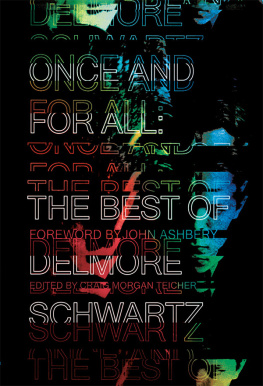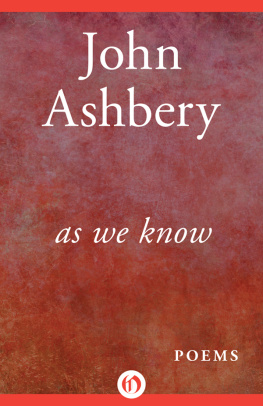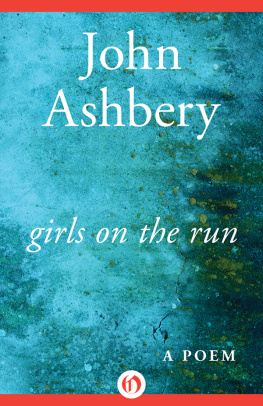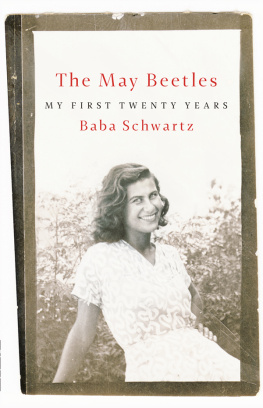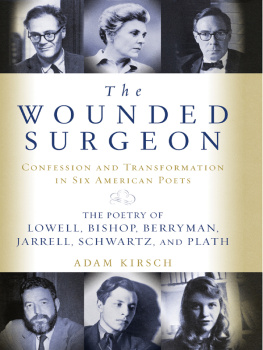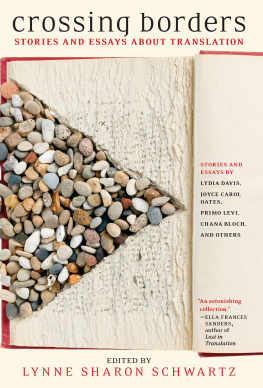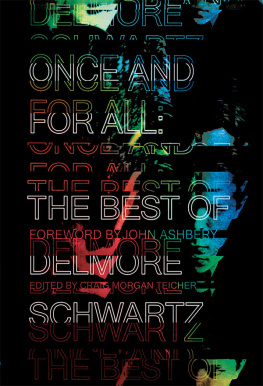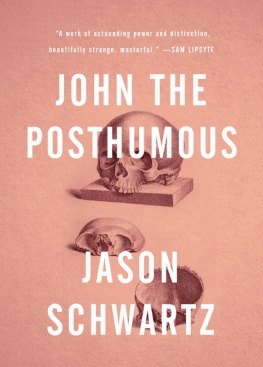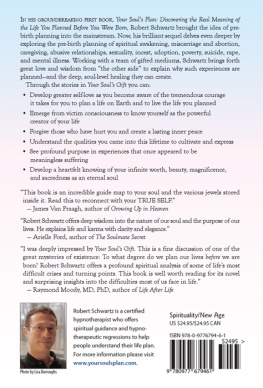Once and for All
ALSO BY DELMORE SCHWARTZ
The Ego Is Always at the Wheel
In Dreams Begin Responsibilities
Last and Lost Poems
Screeno: Stories and Poems
Summer Knowledge: Selected Poems
CONTENTS
Copyright 1948, 1954, 1955, 1958, 1959, 1961 by Delmore Schwartz
Copyright 1979, 1989, 2015 by Kenneth Schwartz
Copyright 1995, 2016 by John Ashbery
Copyright 2016 by Craig Morgan Teicher
Copyright 2016 by New Directions Publishing Corp.
All rights reserved. Except for brief passages quoted in a newspaper, magazine, radio, television, or website review, no part of this book may be reproduced in any form or by any means, electronic or mechanical, including photocopying and recording, or by any information storage and retrieval system, without permission in writing from the Publisher.
Essays and letters in this volume originally appeared in the following publications: The Selected Essays of Delmore Schwartz, ed. Donald A. Dike and David H. Zucker, University of Chicago Press, 1970; Letters of Delmore Schwartz, ed. Robert Phillips, Ontario Review Press, 1984; and Delmore Schwartz and James Laughlin: Selected Letters, ed. Robert Phillips, W. W. Norton, 1993. The verse plays were collected in Shenandoah and Other Verse Plays, ed. Robert Phillips, BOA Editions, Ltd., 1992.
Manufactured in the United States of America
First published as a New Directions Paperbook in 2016
eISBN: 978-0-8112-2433-8
New Directions Books are published for James Laughlin
by New Directions Publishing Corporation
Eighth Avenue, New York 10011
FOREWORD
Though Delmore Schwartzs reputation is sadly diminished from what it was at his beginnings in the late 1930 s, it has been kept alive thanks to James Atlass excellent if depressing biography, which appeared in 1977 , eleven years after the poets early death. Alas, the biography was a success not so much because people were at the time interested in Schwartzs poetry, but because of the cautionary nature of his life story. Readers indifferent to modern poetry could still take grim relish in the classic saga of a brilliant poet, first heralded as a genius, the greatest young poet of his day, who quickly burnt himself out due to mental illness and addictions to alcohol and narcotics, and died almost forgotten at the age of fifty-two in a seedy hotel room in New Yorks Times Square district. In a way, Atlass biography is the contemporary counterpart of Samuel Johnsons great essay on the little-known eighteenth-century poet Richard Savage, which has become a classic study of the self-destructive, paranoid artist. Unfortunately, the story of Delmore Schwartzs life hasnt really sparked an ensuing revival of interest in his poetry. It has, however, kept his Selected Poems and several other collections of his writings in print at New Directions, which first published him in the thirties, and also resulted in the publication of a volume of his letters and a copious selection from his unpublished notebooks. The patient, that is to say his reputation, is still alive, if not exactly well. But the extent of Schwartzs fall from grace can be measured by the fact that, although his early work was admired by Eliot, Auden, and Wallace Stevens, and such influential critics as R. P. Blackmur and F. W. Dupee (who wrote, Since Audens early poems appeared, there has been no verse so alive with contemporary meaning), he is not included in Helen Vendlers comprehensive Harvard Book of American Poetry and is represented by only two poems in Richard Ellmans canonical New Oxford Book of American Verse. Nor can one really fault the editors: Delmore Schwartz is but one, albeit perhaps the most distinguished, of a group of poets of his time whom a revolution in taste (in Schwartzs case speeded by a decline in the quality of his later poems) has swept from view; perhaps he will be swept back in by some future revolution when his time has come.
Now, however, with this spendid Once and for All, the reader can see Delmore Schwartz whole again and take in his entire career.
Delmore, as everyone called him, including those who didnt know him, was born in Brooklyn on December , 1913 , to the unhappily married Harry Schwartz and Rose Nathanson, both immigrants from eastern Europe (Atlantic Jews, as Delmore would characterize their class in his poetry). He both loved and hated the artificially English-sounding name Delmore, and offered various explanations of its origin. James Atlas tells us: Sometimes he would insist he had been named after a delicatessen across the street from the house where he was born, sometimes that his mother had been fond of an actor who was named Frank Delmore. In still other versions, the name was taken from a Tammany Hall club, a Pullman railroad car, or a Riverside Drive apartment house. (His one sibling got off lightly with the given name Kenneth.) In his verse play Shenandoah, the protagonists parents, Mr. and Mrs. Fish, set about choosing a distinguished and new and American name for their firstborn, who becomes Shenandoah Fish, an alter ego appearing in a number of Schwartzs works. Other ponderously named Jewish characters in his writings include Hershey Green (the Anglo-Saxon name Harold transformed to the Jewish Herschel and then to the name of a brand of chocolate), Rudyard Bell, Faber Gottschalk, and Richmond Rose; and Delmore himself would become the character Von Humboldt Fletcher in his friend Saul Bellows roman clef Humboldts Gift, published after Schwartzs death.
The circumstances of Delmores childhood and later life would be continually recalled in his writing, which is in a sense one vast mythification of himself and his family. Harry Schwartz was handsome, a successful businessman and a philanderer. Roses natural bitterness intensified as the marriage failed; in desperation, she secretly cashed a French war bond, the gift of a European uncle, to pay for an operation which would enable her to have children, thinking in this way to attach her husband. The operation was a success, but the marriage wasnt. One particularly traumatic event occurred when Delmore was seven, and his mother discovered his fathers car parked outside a restaurant; going inside, they discovered Harry entertaining a whore, in his mothers term; the ghastly scene that followed would later be enshrined in his poem Prothalamion:
... the speech my mother made
In a restaurant, trapping my father there
At dinner with his whore. Her spoken rage
Struck down the child of seven years
With shame for all three, with pity for
The helpless harried waiter, with anger for
The diners gazing, avid, and contempt,
And great disgust for every human being.
B ut all the small tragedies of childhood, situated and magnified against the backdrop of Europe (especially Russia, his fathers homeland) and the war that raged there, would become grist for Schwartzs writing. In one of his best-known poems, The Ballad of the Children of the Czar, he compares himself, eating a baked potato in Brooklyn in 1916 , with the Czars children playing ball six thousand miles away; he knocks the potato off his tray and loses it, just as the childrens ball escapes through a gate, and the ramifications extend even further back into history and myth: In historys pity and terror / The child is Aeneas again; / Troy is in the nursery, / The rocking horse is on fire. / Child labor! The child must carry / His fathers on his back. History, he observes, has no ruth, no pity, for the individual, / Who drinks tea, who catches cold, that is to say, everybody. And in his most famous short story, In Dreams Begin Responsibilities, the poet himself moves backward in time, dreaming he is in a movie theater watching a silent film of his parents courtship at Coney Island years before. At a crucial moment I stood up in the theatre and shouted: Dont do it. Its not too late to change your minds, both of you. Nothing good will come of it, only remorse, hatred, scandal, and two children whose characters are monstrous.

